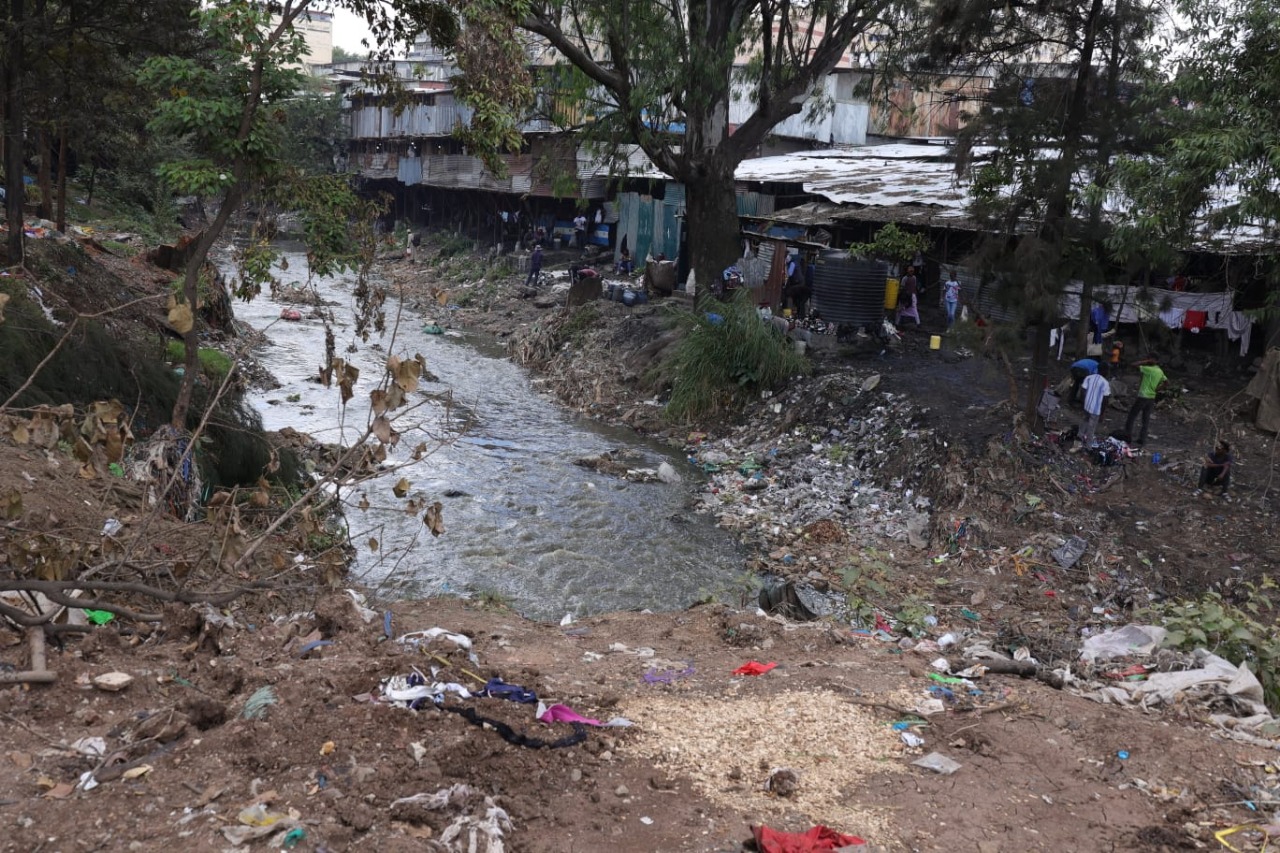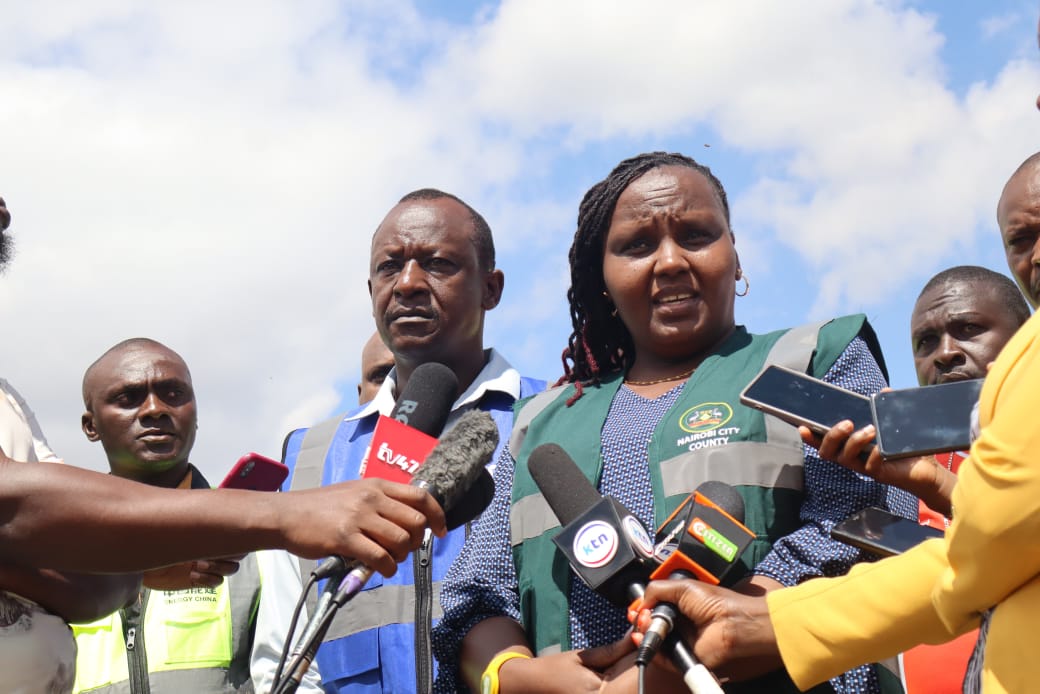Kenya Prepares for Mazingira Day 2025 With Nationwide Call to Donate Fruit Trees

Principal Secretary for Environment and Climate Change, Dr. Eng. Festus K. Ng’eno (left), and Principal Secretary for Forestry, Mr. Gitonga Mugambi (right), during a media briefing in Nairobi on September 30, 2025, ahead of the Mazingira Day 2025 celebrations
The government has announced countrywide preparations for this year’s Mazingira Day, set for October 10, urging Kenyans to donate fruit trees to their former primary schools and join clean-up campaigns as part of a national effort to restore degraded landscapes and strengthen environmental stewardship.
The Ministry of Environment, Climate Change and Forestry said the 2025 edition will be observed under the theme “Citizen-Centric Tree Growing and Environmental Stewardship,” and will adopt a dual model comprising a national celebration in Trans Nzoia County alongside simultaneous events in thousands of schools and communities across the country.
Speaking during a media briefing in Nairobi yesterday, Principal Secretary for Environment and Climate Change, Dr. Eng. Festus K. Ng’eno, said Mazingira Day is a chance for Kenyans to reaffirm their collective commitment to conservation, climate action and community service. He noted that the initiative is designed to inspire intergenerational responsibility by involving learners, alumni, and local leaders in tree planting and clean-up activities that directly benefit communities.
“This year, we call on all Kenyans under the rallying cry Turudi Primo Tukadonate Fruit Trees na Kuclean Environment. Let us donate fruit trees, plant them together with learners, and clean our school surroundings and markets, leaving a living legacy for generations to come,” Dr. Ng’eno said.
He explained that the government has set a target of planting more than 71.14 million fruit tree seedlings across 35,570 public and private primary schools. In schools where land is limited, surplus seedlings will be distributed to learners to plant at home, ensuring that no child is left out of the national greening campaign.
The PS said the deliberate choice of fruit trees is linked to their multiple benefits for communities. “Fruit trees are more than seedlings in the soil. They are food on the table for our children, a source of vitamins for good health, and an income stream for schools and families through the sale of surplus produce. They improve local microclimates, conserve biodiversity, and instill values of care and responsibility in young people,” he said.
Dr. Ng’eno added that the day will not only focus on tree planting but also connect with broader environmental action, especially in waste management. He pointed to the rollout of color-coded waste bins, recently gazetted by the government to encourage segregation at source. These, he said, will help communities recycle more effectively and reduce pollution.
“We want to strengthen community-led waste segregation, collection and recycling, while supporting innovations in the circular economy. This approach will create new green jobs for our youth and women and position Kenya as a regional hub for sustainable packaging, eco-design and green manufacturing,” he said.
The national event will take place in Trans Nzoia County, bringing together thousands of participants, including national and county leaders, development partners, schools and communities. Activities will include tree planting, mentorship sessions, cultural performances and exhibitions, as well as recognition of exemplary institutions and counties that have excelled in restoration.
Simultaneously, thousands of schools and local markets across the country will host similar activities. Cabinet Secretaries, Principal Secretaries, governors, assistant chiefs, alumni and learners will lead the tree planting and clean-up campaigns. The Ministry said this decentralised model ensures that Mazingira Day is not just a one-day event but a citizen-driven movement taking place across all regions.
Forestry PS Gitonga Mugambi said schools will be at the centre of the campaign, serving both as planting sites and as centres of learning on environmental care. He explained that learners will directly benefit from the initiative, which ties restoration to nutrition and livelihoods.
“Schools will become living classrooms where the environment is not taught as theory but as practice. When children plant fruit trees, they learn the value of nurturing life and caring for ecosystems. At the same time, they eat the fruits, improve their diets, and even generate some income from surplus sales to support school programmes,” Mugambi said.
He noted that the initiative will also strengthen community-school partnerships, as alumni return to their former schools to give back in a practical way. “This is about building continuity between generations. Those who once sat in the classrooms will now return to plant alongside today’s learners, passing on the values of conservation and responsibility,” he added.
Preparatory activities for the Day have already begun. These include World Clean-Up Day, which was observed on September 20, and the upcoming Chiefs’ Climate Action Day on October 3, which will mobilise grassroots leadership across the country. In addition, Environmental Sports Championships are planned to engage athletes as role models and climate champions, linking sports with environmental responsibility.
The Ministry emphasised that the build-up events are meant to keep citizens engaged and ensure momentum continues beyond the official Mazingira Day. They also provide opportunities for counties to showcase best practices in tree growing and waste management.
Between October 3 and 9, Kenyans are being urged to return to their former primary schools to donate fruit trees, plant them with learners, and participate in clean-up campaigns. The Ministry said this exercise will unite alumni, teachers, learners, and community members in a collective effort to transform school environments into greener, cleaner and more productive spaces.
Dr. Ng’eno reiterated that Mazingira Day is about action, not words. “This is a moment to weave national solidarity, community ownership and a shared vision for a greener future. Every Kenyan has a role to play, whether by planting a fruit tree, joining a clean-up, or mentoring children on the values of stewardship,” he said.
Mazingira Day was established in 2024 following an amendment to the Public Holidays Act that replaced Utamaduni Day with a dedicated day for environmental awareness and citizen action. Since then, it has grown into Kenya’s flagship platform for promoting environmental stewardship and mobilising communities around the government’s 15 Billion Tree Growing Programme, which seeks to restore 10.6 million hectares of degraded land and achieve 30 per cent tree cover by 2032.
Since the programme’s launch in December 2022, Kenyans have already planted nearly one billion trees. Officials said the target is ambitious but achievable with continued citizen participation, public-private partnerships and county-level mobilisation.
By merging restoration with nutrition, education and livelihoods, this year’s Mazingira Day celebrations are expected to demonstrate Kenya’s commitment to building a greener, healthier and more resilient nation for generations to come.





